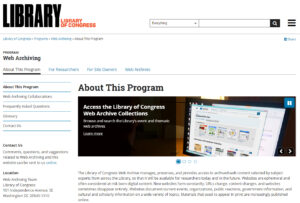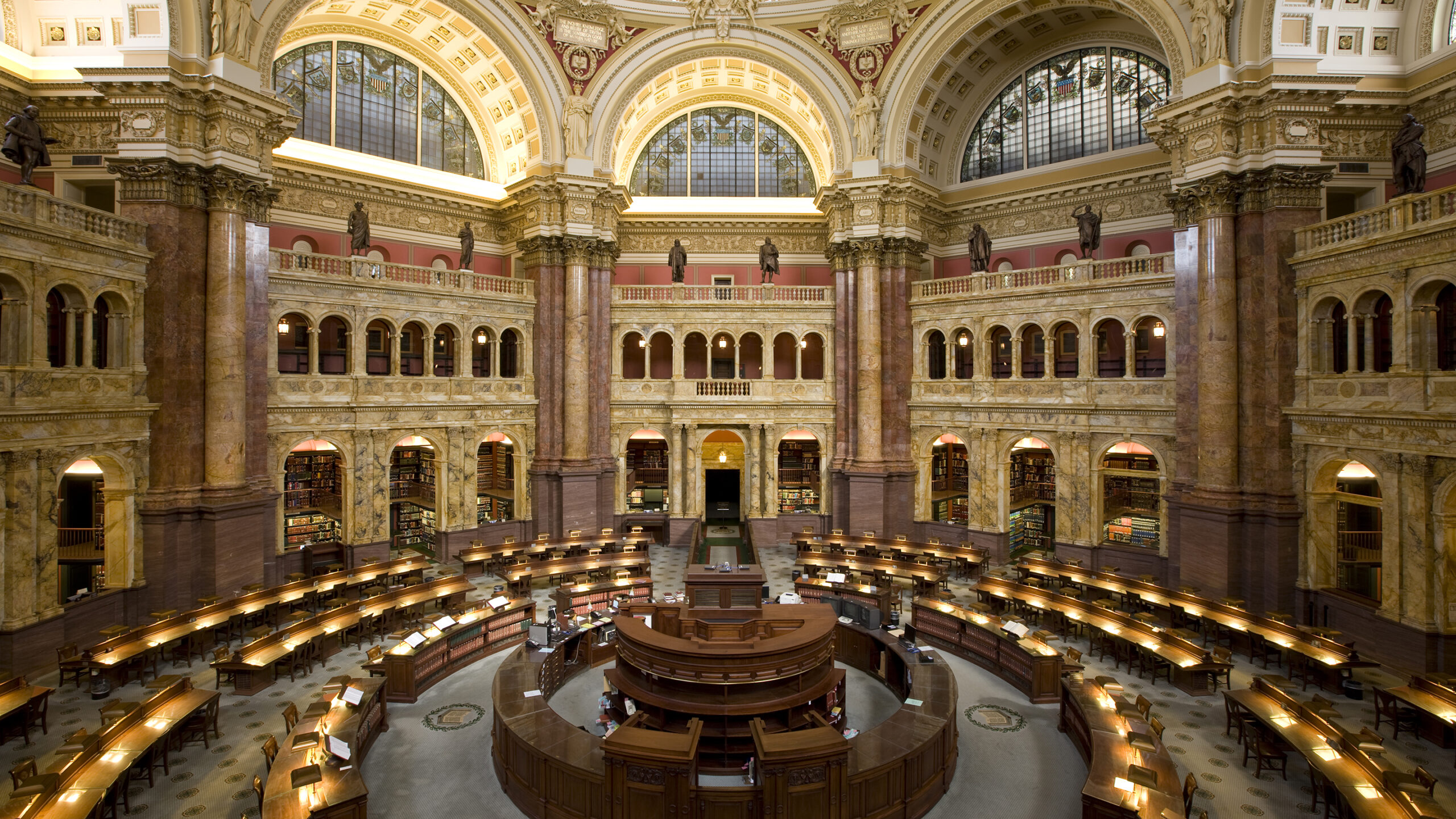In an era dominated by digital information and rapid technological advancements, the importance of preserving our digital heritage has never been more evident. One institution at the forefront of this endeavor is the Library of Congress, a stalwart guardian of knowledge and culture. The Library’s Web Archive stands as a testament to its commitment to capturing the ever-evolving digital landscape, and its recent invitation to the Romanians of Washington, DC to be included in this archive, underscores the significance of inclusive preservation.
The Library of Congress Web Archive: Safeguarding Digital History
The Library of Congress, often revered as the United States’ oldest federal cultural institution, has transcended its traditional role as a repository of physical books to embrace the digital age. The Library’s Web Archive, established in 2000, is a pioneering effort aimed at preserving websites, blogs, social media, and other digital content of enduring value. As the internet continually reshapes how we communicate and access information, the Library’s Web Archive stands as a vital resource for future generations to understand the digital evolution of society.
 As the Library’s website notes: “The Web Archive manages, preserves, and provides access to archived web content selected by subject experts from across the Library, so that it will be available for researchers today and in the future. Websites are ephemeral and often considered at-risk born-digital content. New websites form constantly, URLs change, content changes, and websites sometimes disappear entirely. Websites document current events, organizations, public reactions, government information, and cultural and scholarly information on a wide variety of topics. Materials that used to appear in print are increasingly published online. The Library’s goal is to create an archival copy—essentially a snapshot—of how the site appeared at a particular point in time. The Library attempts to archive as much of the site as possible, including html pages, images, flash, PDFs, and audio and video files to provide context for future researchers. The Library (and its agents) use special software to download copies of web content and preserve it in a standard format.
As the Library’s website notes: “The Web Archive manages, preserves, and provides access to archived web content selected by subject experts from across the Library, so that it will be available for researchers today and in the future. Websites are ephemeral and often considered at-risk born-digital content. New websites form constantly, URLs change, content changes, and websites sometimes disappear entirely. Websites document current events, organizations, public reactions, government information, and cultural and scholarly information on a wide variety of topics. Materials that used to appear in print are increasingly published online. The Library’s goal is to create an archival copy—essentially a snapshot—of how the site appeared at a particular point in time. The Library attempts to archive as much of the site as possible, including html pages, images, flash, PDFs, and audio and video files to provide context for future researchers. The Library (and its agents) use special software to download copies of web content and preserve it in a standard format.
The Library of Congress web archives are organized in thematic and event-based collections, and contain websites documenting a variety of U.S. and international organizations representing a broad range of subjects and topic areas.”
A Bridge to Cultural Heritage: The Romanian Community of DC’s Inclusion
In a groundbreaking initiative that emphasizes the Library’s commitment to inclusivity, the website of the Romanian community of Washington, DC – www.romaniansofdc.org – has been extended a unique invitation. This invitation pertains to the inclusion of the community’s digital presence in the Library’s Web Archive, ensuring that our stories, experiences, and contributions will be preserved for posterity. This gesture acknowledges the profound impact of diverse communities on shaping the narrative of our times, and reinforces the Library’s dedication to chronicling a comprehensive digital heritage.
The official notification from the Library reads: “The United States Library of Congress has selected your website for inclusion in the Voices: Eastern and Central European Americans Web Archive, which is part of a larger collection of historically and culturally significant websites that have been designated for preservation.
In addition to the aforementioned collection, archived content from your website may be added to other relevant collections in the future. This content will be available to researchers at Library facilities and by special arrangement. It may also become more broadly available through hosting on the Library’s public website, which would be done no sooner than one year after it was collected.

The Library hopes that you share its vision of preserving digital content and making it available to current and future generations of researchers. As the internet has become an increasingly important and influential part of our lives, we believe the historical record would be incomplete if websites like yours are not preserved and made a part of it.”
Why Inclusion Matters: Celebrating Diversity in Digital Archives
The Library’s outreach to the Romanians of DC serves as a model for recognizing the significance of diverse voices and perspectives in the digital realm. The digital world has the potential to break down barriers and foster cross-cultural understanding, but this can only be achieved if a variety of voices are preserved and accessible. By actively seeking out contributions from communities like the Romanians of DC, the Library of Congress is amplifying narratives that might otherwise go unnoticed, enriching the depth and breadth of its Web Archive.
The Future of Digital Preservation: A Call to Action
As technology continues to reshape how we interact with information, the task of digital preservation becomes more urgent. The Library of Congress Web Archive sets a precedent for other institutions to follow, demonstrating the value of recording our digital heritage in all its forms. The invitation extended to Romanians of DC reflects not only a commitment to preserving their stories but also a broader call to action for communities across the globe to actively engage in safeguarding their digital legacies.
In conclusion, the Library of Congress Web Archive stands as a testament to the importance of preserving our digital heritage. The recent invitation to Romanian of DC exemplifies the Library’s dedication to inclusivity and the recognition of diverse voices in shaping our digital narrative. As we navigate the ever-changing landscape of the digital age, the Library of Congress remains a beacon of guidance in the vital mission of preserving our shared digital history.
